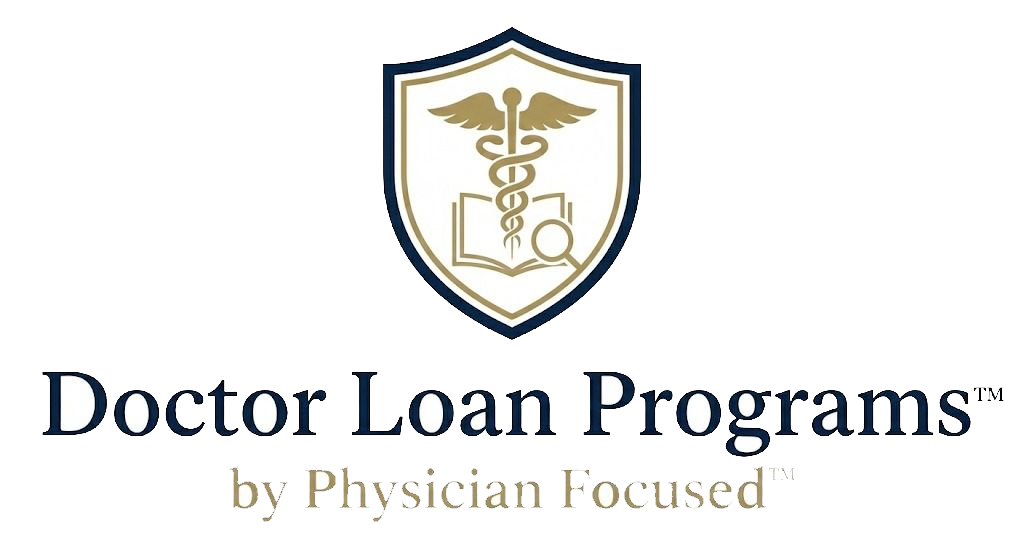You may find navigating the landscape of doctor loans overwhelming, but understanding the key steps can significantly impact your financial future. This guide will walk you through the imperative actions you can take to secure the best rates available. By tailoring strategies specifically designed for physicians, you can optimize your loan options and make informed decisions. Dive into these eight important steps to empower yourself on your journey toward financial success in your medical career.
Understanding Doctor Loans
A Doctor Loan is a unique mortgage option tailored specifically for medical professionals, providing them with favorable terms to help you secure the financing you need to buy a home. These loans recognize the unique financial circumstances of physicians, such as high education costs and delayed income, making homeownership more accessible for you early in your career.
What Are Doctor Loans?
Among the features of Doctor Loans are high loan amounts, low or no down payment requirements, and consideration of your future earning potential rather than solely your current financial status. This makes them an attractive option for physicians looking to invest in real estate without the usual burdens faced by first-time buyers.
Why They Are Different from Conventional Loans
About the differences, Doctor Loans often accommodate higher debt-to-income ratios compared to conventional mortgages. They also frequently allow for loan approval without the need for private mortgage insurance (PMI), which can substantially lower your monthly payments and overall borrowing costs.
Different from conventional loans, Doctor Loans cater specifically to your unique circumstances as a physician. While traditional lenders may focus solely on your current salary, these specialized loans take into account your projected income, enabling you to borrow larger amounts with reduced upfront costs. This streamlined process makes it easier for you to achieve your homeownership goals sooner, allowing you to focus on your medical career without financial distractions.

Eligibility Criteria
Some lenders have specific eligibility criteria tailored for physicians when applying for doctor loans. Typically, these criteria include factors such as your professional status, the type of medical degree you hold, and your current employment situation. As a physician, you may have additional advantages, including higher loan amounts and favorable repayment options, making understanding these standards necessary for securing the best rates.
Residency and Fellowship Considerations
Around the time of your residency or fellowship, you may be concerned about how your status affects your loan application. Many lenders recognize that residents and fellows have unique financial situations, often offering specialized loan products that accommodate your income levels and future earning potential. Be proactive in discussing your situation with lenders, as they might provide more flexible terms based on your career stage.
Credit Score Requirements
Score is an important aspect of the eligibility criteria for doctor loans. Lenders typically look for a credit score of at least 680 to qualify for favorable loan terms. Your credit score reflects your creditworthiness, which can significantly influence the interest rates and repayment options made available to you during the loan process.
Requirements for your credit score can vary among lenders, so it’s beneficial to check what individual lenders expect. If your score is below the standard threshold, consider taking steps to improve it by managing your debts responsibly, ensuring timely bill payments, and correcting any inaccuracies in your credit report. A higher score not only increases your chances of approval but can also lead to better loan terms, ultimately saving you money over time.
Finding the Right Lender
To secure the best rates on your doctor loan, you must take the time to find the right lender. This involves researching various lending institutions, evaluating their interest rates, terms, and customer service. Understanding the unique programs tailored for physicians can also set you apart, so ensure that the lender you choose recognizes your professional status and offers specialized solutions. Selecting a suitable lender will ultimately enhance your chances of obtaining favorable financing options.
Key Attributes to Look For
Along your journey to find the ideal lender, focus on key attributes that can make a difference. Look for lenders who offer competitive interest rates, flexible repayment terms, and a thorough understanding of the specific needs of medical professionals. Additionally, assess the lender’s responsiveness and support; having someone knowledgeable and accessible can make your loan experience smoother and more efficient.
Comparing Lender Offers
One effective way to ensure you’re getting the best deal is by meticulously comparing lender offers. By gathering quotes from multiple lenders, you can analyze interest rates, fees, and repayment options, allowing you to make an informed decision. This process may seem daunting, but it can lead to significant savings over the life of your loan.
| Lender | Interest Rate |
|---|---|
| Lender A | 3.5% |
| Lender B | 3.75% |
| Lender C | 3.25% |
Look for not just the interest rate but other important elements such as loan origination fees, prepayment penalties, and repayment flexibility. Understanding the complete structure of each offer will allow you to evaluate which option aligns best with your financial goals. Gathering this information in a side-by-side comparison will provide clarity, helping you feel confident in your final choice.
| Lender | Loan Fees |
|---|---|
| Lender A | 1% origination fee |
| Lender B | No origination fee |
| Lender C | 0.5% origination fee |

Preparing Your Financial Documents
Once again, gathering your financial documents is vital for securing favorable terms on your doctor loan. Lenders will review these materials to assess your financial situation and determine your eligibility. Ensuring that your documentation is complete and organized will make the process smoother and improve your chances of getting the best rates.
Essential Documents for Application
Among the important documents you will need to compile are your recent pay stubs, bank statements, tax returns, and proof of any additional income. Having these documents readily available can expedite the loan application process and present you as a well-prepared candidate to lenders.
Importance of Accurate Information
Your ability to provide accurate information in your loan application can significantly impact the approval process and the rates you receive. Lenders rely on this information to assess your financial health and risk level.
And, inaccuracies or missing details can lead to delays or even loan denial. By ensuring that your documents reflect your true financial situation, you’ll not only improve your chances of approval, but also enhance your credibility with lenders. Take the time to double-check the information on your forms, as it paves the way for a smoother borrowing experience.
The Application Process
Many physicians find the application process for doctor loans to be straightforward, but understanding the nuances can help you secure the best rates. You’ll typically need to provide your financial documents, credit history, and information about your employment. Being proactive in gathering this information can make the process smoother and quicker, ultimately easing your path to homeownership.
Steps Involved in Applying for a Doctor Loan
Above all, you should begin by researching lenders that specialize in doctor loans. Next, gather necessary documentation, including proof of income, employment verification, and your credit report. Filling out the application accurately and completely is key, along with following up with lenders to ensure nothing is missing. Don’t forget to review your loan options thoroughly before making a final decision.
Common Mistakes to Avoid
Below are some frequent missteps that could affect your loan approval or rate. Many applicants overlook the importance of a strong credit score or underestimate how much debt they have. Failing to provide complete documentation or rushing through the application can lead to delays. Ensure you’re aware of all fees and terms before committing.
Applying for a doctor loan without a clear understanding of your financial situation can lead to pitfalls. Not checking your credit score ahead of time may surprise you with unexpected rates or terms. You should also avoid ignoring any debts that could influence your debt-to-income ratio. Lastly, some applicants skip comparing different lenders, which can result in missing out on better offers. Take the time to analyze all aspects of the loan application to ensure you’re making the best choice for your needs.
Locking in the Best Rates
Now that you understand the importance of securing competitive rates for your doctor loan, it’s time to take action. Locking in the best rates can significantly affect your monthly payments and the total interest paid over the loan duration. Ensure that you act promptly when you find favorable rates, as they can fluctuate based on market conditions. Establish a relationship with your lender to expedite the process, and keep an eye on economic trends that may affect interest rates.
Timing Your Application
An optimal time to apply for your doctor loan can enhance your chances of securing low rates. Pay attention to market trends, such as the Federal Reserve’s decisions, which can influence interest rates. Generally, early spring or fall seasons may provide a window of opportunity, as lenders are often more competitive during these periods. Aligning your application timing with favorable economic conditions can set you up for success.
Strategies for Negotiating Rates
Strategies for negotiating rates can play a pivotal role in getting the best deal on your doctor loan. Understanding your financial position, maintaining a strong credit score, and offering to provide a larger down payment can give you leverage when negotiating interest rates with lenders.
It is important to approach lenders with confidence and knowledge about current market rates. Don’t hesitate to shop around and compare offers from multiple lenders. Having competing quotes in hand gives you the power to negotiate, allowing you to ask lenders to match or beat other offers. Being transparent about your financial health, including your income and expenses, can also help build trust and facilitate better terms on your loan. Leverage any existing relationships with financial institutions you trust, as they may provide you with exclusive rates or lower fees.
Conclusion
With these considerations in mind, you can confidently navigate the process of securing doctor loans. By thoroughly assessing your financial landscape, choosing the right lender, and understanding the various loan options available, you position yourself to obtain the best rates. Additionally, taking the time to improve your credit score and gather your documentation will streamline your application process. Your unique status as a physician offers opportunities that, when leveraged correctly, can lead to favorable loan terms to support your professional and personal financial goals.
FAQ
Q: What are Doctor Loans and how do they differ from traditional loans?
A: Doctor loans are specialized mortgage products designed specifically for physicians and other medical professionals. These loans offer unique features such as no down payment options and the ability to qualify based on future income rather than current salary, which is particularly beneficial for recent graduates or those still in residency. Unlike traditional loans that often require a significant down payment and thorough credit history, doctor loans accommodate the financial situations common among medical professionals.
Q: What are the key steps physicians should take to secure the best rates on Doctor Loans?
A: To secure the best rates on Doctor Loans, physicians should follow several important steps:
1. Research Lenders: Start by comparing different lenders that offer doctor loans and look for those with favorable terms and rates.
2. Check Credit Score: A higher credit score typically results in better loan rates; therefore, reviewing and improving your score before applying can be beneficial.
3. Gather Necessary Documentation: Prepare all relevant financial documentation, including proof of income, employment verification, and student loan information to streamline the application process.
4. Consider Loan Terms: Evaluate different loan terms, lifetime and adjustable-rate options, and rates to determine what aligns best with your financial goals.
5. Consult Colleagues: Speak with fellow physicians who have gone through the process to gain insights about lenders and experiences.
6. Negotiate Terms: Don’t hesitate to negotiate your loan terms with lenders; they may offer better conditions if they see you are informed and prepared.
7. Seek Professional Guidance: Consulting with a finance professional who understands physician loans can provide personalized advice tailored to your situation.
8. Finalize Your Choice: Once you have compared rates and terms, make an informed decision and finalize the loan process with the chosen lender.
Q: What should physicians be cautious about when considering Doctor Loans?
A: When considering Doctor Loans, physicians should be cautious about the following factors:
1. Interest Rates: While doctor loans may have appealing features, interest rates can vary significantly among lenders. Always compare rates and be aware of any potential rate adjustments.
2. Loan Limitations: Understand any limitations associated with the loan, such as property type restrictions or maximum loan amounts, which might affect your purchase options.
3. Fees: Investigate all associated fees, including origination fees and closing costs, that may not be immediately apparent, as these can affect the overall cost of the loan.
4. Future Financial Planning: Ensure that taking on the mortgage aligns with your long-term financial goals and does not impede your ability to manage other financial obligations such as student loans or other debts.
5. Prepayment Penalties: Be aware of any prepayment penalties that could arise if you choose to pay off your loan early, as this could limit your financial flexibility in the future.




